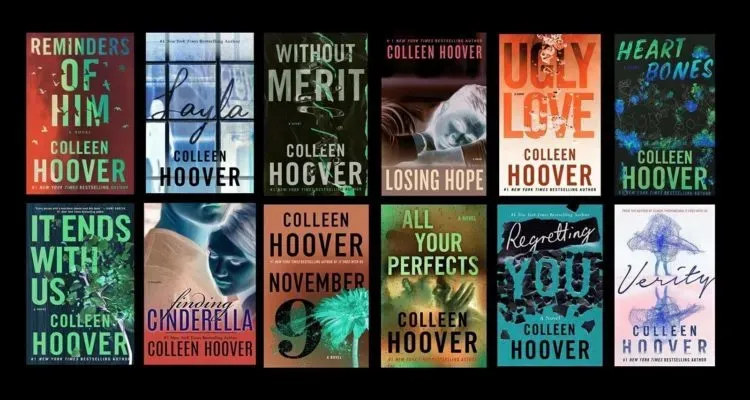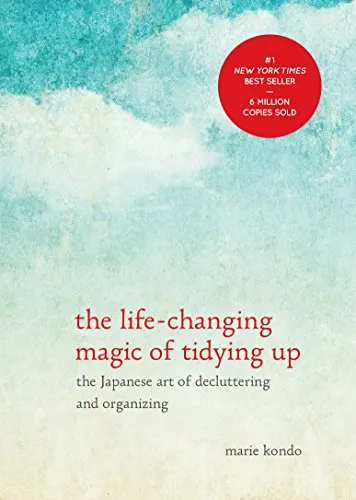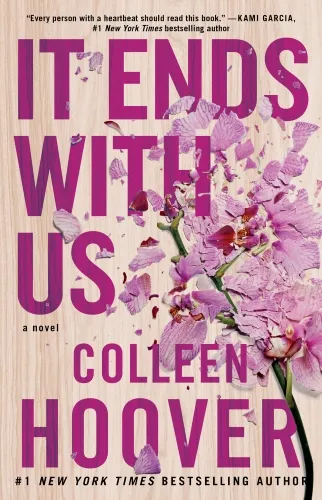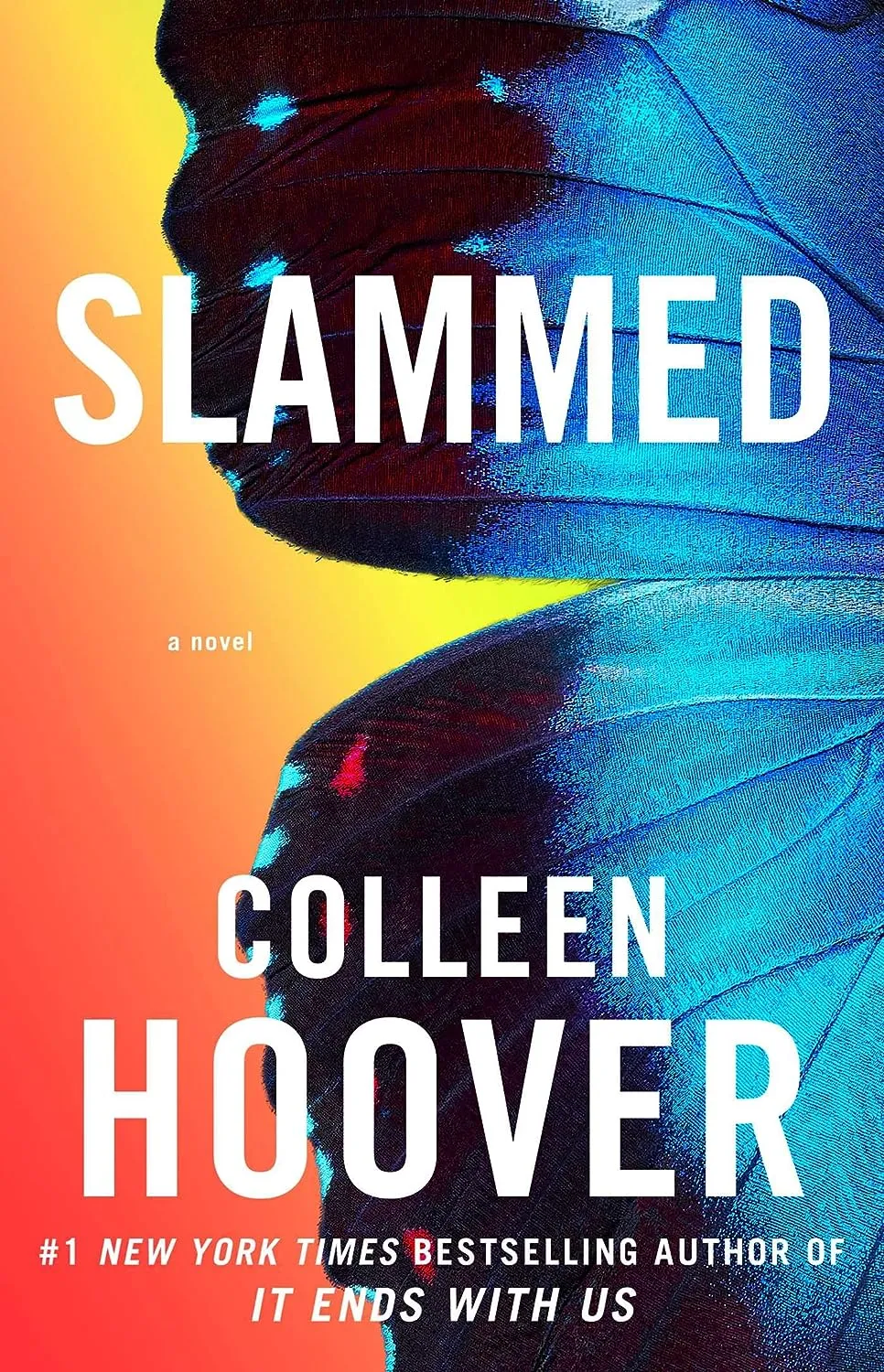
Colleen Hoover: The Most Mystifying Bookish Phenomenon of All Time
When, years ago, I taught freshman composition, I struggled to break my excellent, eager students from their five-paragraph secondary education. They were well-drilled: claim, evidence, evidence, evidence, conclusion. And, if you know what you think and you already have the evidence to “prove” it, this can work.
But usually, it results in boring, safe, and otherwise generally uninteresting thinking. It is comforting to have a formula, but like all formulas, it does not readily lend itself to discovery. Instead, what I was taught to teach was an interrogative method. In this mode, the essay asks a question and then does its best to answer it. Answering the question is not the metric of success, but how thoughtful, well-evidenced, and articulate was the attempt to answer. The very best essays I found came to something like the following conclusion: “you know, I think I now understand what a better question is.” It is in this spirit that I am writing now. And here is my question: “why does the Colleen Hoover phenomenon feel so damn weird?” My hope is to answer, or reframe, the question for myself, and in doing so provide you with something I tried so hard to get my students to do more than a decade ago.
Before getting to the “so damn” adverbial phrase, I think it’s worth stating this: all bookish phenomena are strange. The publishing industry is so mature and the history of writing so long, that it takes something genuinely unusual to become a phenomenon. If publishing phenomena were not by their nature strange, meaning unpredictable and unmanufacturable, we would have them all the time, see them coming a mile away, and probably as a result have fewer books out there.
Consider a handful of the most significant breakouts of the last 30 years: Gone Girl by Gillian Flynn, the Harry Potter franchise, The Da Vinci Code, 50 Shades of Grey, Rupi Kaur, The Life-Changing Magic of Tidying Up, The Twilight Saga.
Taken individually, each one is an extremely unlikely candidate to make cultural waves. None, save perhaps Gone Girl, was a critical favorite. If you squint, the only real commonality is that the kind of people who think about books regularly dismiss them all at some stage, from acquisition to mainstream acceptance.
So rather than being surprised that an out-of-nowhere hit doesn’t seem like the kind of thing that would be a hit, we should, somewhat counter-intuitively, expect it. In fact, it seems being weird is a necessary condition of being a runaway best-seller.
I know this. I have thought about it a lot. And yet still I am having trouble getting my head around Colleen Hoover. And this, I think, is because not only is her success strange, but it is also differently strange.
I have made notes to myself over the last couple of years as this has unfolded about this different strangeness, and I think I can outline the X things that make Hoover stand out even from this group of outliers.
Social Media on Steroids
I am not a regular user of TikTok, nor am I especially interested or well-suited to comment on its strengths, character, culture, or consequence. I have, though, been a part of running a digital media company over the last 11 years and can at least put its current dominance in context: we have not seen anything like it. This isn’t pre-algorithm Facebook or when Twitter was Good or Pivot to Video. We had seen virality before but didn’t realize we were dealing with the common cold when COVID was out there waiting for us. TikTok’s interest in, and ability to foster, algorithmic reach differs both in degree and kind. For years, publishing has been trying to turn social media attention into sales, and by and large it hasn’t happened. And I think that made sense, the elusive “word of mouth” never has obeyed marketing plans or publicity campaigns neatly and social media was essentially more observable word of mouth.
TikTok is different, as is its kid brother copy-cat Instagram Reels. It doesn’t just make what people are saying public, it inserts itself into that process. What someone says that some others pay a little more attention to then gets a little more goosing from the algorithm. And so then users know that topic gets more juice, so then they talk about it as well. Suddenly something can become a thing out of just barely more than nothing.
I don’t know if, in a different world, Colleen Hoover ever gets a book on any kind of traditional best-seller list (hold please on her early self-publishing success). Maybe she does. Barry Bonds was after all one of the great baseball players of all time before it seems he turned to steroids and became a record-shattering behemoth.
Only Oprah has had anything close to the third-party influence of TikTok. In the glory days of Oprah’s Book Club when a selection could spur a million print sales, we at least had some sense that Oprah was intervening out of some kind of personal interest. She genuinely seems to love books and authors and people trusted her picks. But what does TikTok “want”? And how does this affect what users of TikTok, especially when it comes to books, end up doing, saying, reading, and buying? I haven’t seen a good answer.
Backlist is the Future?
Interest in It Ends with Us saw its first mini-spike in March of 2021, built steadily for a year, and then peaked sharply in the summer of 2022. This is not an unusual shape (it reminds me of Where the Crawdads Sing recently). What is unusual is that in March of 2021, It Ends with Us had already been out five years.
I can’t stress how strange this is. I have no antecedent for a book hitting like this a half-decade after it was first released. None. And we don’t know why. This piece from The New York Times, one of the only mainstream attempts to reckon with Hoover’s rise out there, yadda yaddas this moment. One listener to the Book Riot podcast said that Hoover’s move to make some of her books free to read early in the pandemic got the ball rolling. Sure?
The twin storms of TikTok and COVID do seem to have been factors, but how exactly is likely to remain a mystery. TikTok has shown a new-under-the-sun ability to pluck books and authors from not just obscurity, but also the past (are you hip to Cain’s Jawbone?).
Generally, when a thing is going to become a thing, the signs are there in the beginning. No longer.
Deep Catalog
One of the unique elements of Hoover’s book-selling might last year is so obvious that it is hard to see. For people like me, the headline that she had eight of the 25 bestselling books of 2022 is mind-blowing and sorta buries the lede at the same time. She had eight books ready to be bought by recent CoHo converts.
This is a corollary of the above point about the age of It Ends with Us: since it had been out for a while, Hoover had written more in the meantime. And when combined with her brisk publication pace, this interval meant that when people got hooked on the vibe, there were lots of titles ready for them. Sometimes an author will hit with book #2 or #3 (Dan Brown is nodding vigorously here) or have a series ready to go (E.L. James waves from her pool of money). But it is unheard of for there to be a shelf full of books, ready to buy, not a part of a series, that ride the wave.
Standalone, Together
Before It Ends with Us, Hoover mostly wrote in series (Hopeless, Maybe Someday, Slammed). After It Ends with Us, 10 of her next 12(!) books were standalones. Clearly, people were there for her, not for a particular character, story, series, or franchise. She became a brand name author faster than anyone else, and it occurs to me that she is in that rarified air, with a very short list that includes Stephen King, of above-the-title authors that don’t primarily write series.
At Home in the World
Stephen King is with Simon & Schuster. James Patterson is practically a world unto himself at Hachette. Harry Potter house might be Gryffindor, but it’s just as much Scholastic. Hoover? She has books out/forthcoming with the following: Simon & Schuster, HarperCollins, Hachette, Amazon, and I am sure others that I don’t know about or are in the works. Part of this was that she had a stack of still self-published only books ready to be packaged, printed, and stocked. And everyone is interested.
Colleen Whover
At the height of the 50 Shades frenzy, there were articles and essays about it. You could make a Da Vinci Code joke, and people would get it. At some level, there are enough copies out there in the world that it would become part of the world. Now, I have seen Hoover books on planes and beaches and have had Colleen Hoover conversations with many of my reads-every-now-and-again friends. But could you do a Colleen Hoover sketch on Saturday Night Live?
I imagine this will change soon: a Blake Lively-fronted adaptation of It Ends with Us can do that. Until then, though, Lily Bloom is still pretty anonymous, and it’s Hoover, not her characters or stories, who is the draw.
What’s the Hook?
Wizard school. BDSM billionaires. Faked her death and pinned it on Affleck. Sparkling vampire love triangle. Symbologist uncovers millennia-old Jesus protecting sex cult (OK, The Da Vinci Code is still pretty wild). These are all distinct, if not obviously commercial, hooks. The best articulation of Hoover’s appeal I have seen comes from Laura Miller:
“Her books are efficient delivery mechanisms for the maximum dosage of multiple crowd-pleasers: love stories, unabashed smut, trauma plots, tear-jerking soap opera, and wild narrative twists. They are the everything bagels of popular fiction.”
So the thing that makes Hoover special is…everything? I didn’t know you could do that! Why didn’t someone think of doing everything before?! It’s literally all right there.
I’m kidding a little, but after reading It Ends with Us and browsing reviews for other Hoover titles, I see it, even if I don’t feel it. Hoover is not afraid to put a capital R romance next to a story of domestic abuse. No twist is too out there nor any emotion too dialed up. It’s the Fast & Furious of the heart (and sometimes groin).
Is She the First…and the Last?
If we can agree that TikTok made Colleen Hoover the juggernaut she has become, can it make others? There have been terrific winners (Taylor Jenkins-Reid, Sarah J. Maas, etc.), but Hoover has reached some other stratosphere. Would it be weird if the greatest publishing success story of the TikTok era came right near the beginning of it? Or would it be weirder if it didn’t?
If TikTok goes that way of all other social media networks and settles into an existence somewhere between cultural kingmaker and MySpace, has Colleen Hoover banked enough mindshare to be pumping out three best-selling trade paperbacks a year in 2032?
What will the next giant hit be? Is it possible for it not to come from TikTok and short-form social video? So many recent blockbuster books inspired not only copycats but cleared ground for sustained interest in new kinds of stories. The female-driven psychological thriller is a mainstay now thanks to Gone Girl, and the chasing-that-Hogwarts-feeling read-a-likes fill school libraries across the world. What would a “for readers of Colleen Hoover” subgenre look like? How do you pitch “commercial fiction, but more so”?
OK, I got it all out. Those are the reasons it feels so damn weird. And, as I hoped and maybe promised, it brings me to a next, more interesting question: why does it matter if it is so damn weird?
If breakout books are by definition outliers, then it is not the strangeness that is mystifying. It is that this one is differently strange. And this different strangeness could portend a new era of hits or at least a new era of how hits are made. In a way, that would actually be easier to understand than the other possibility: that Hoover-mania doesn’t portend a new era, and that it will stand as a singular monument of….yea still can’t figure it out.
The comments section is moderated according to our community guidelines. Please check them out so we can maintain a safe and supportive community of readers!













Leave a comment
Join All Access to add comments.